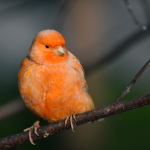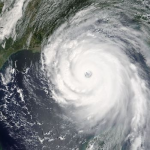The recent fires in Canada that resulted in a few days of heavy smoke-related air pollution in the Northeast have momentarily grabbed our attention. The very vocal "enviro-fearful" are concerned with more fires to come; the quieter "enviro-fearless" shrug it off as bad forest management. Each side accuses the other of bias in their interpretation of these events. There's another predictor of the future that has no such prejudice, and they're signaling their alarm by getting out.
natural disasters
What do an island in the Aleutians, the Ides of March, and climate change resulting in famine have in common? Volcanism.
We tend to overlook how natural disasters like the coronavirus pandemic shape human behavior. Maybe that should change.
How lucky we are to be alive when, while enduring catastrophic events, the possibility of real-time help is literally at our fingertips.
The recent wildfires in northern California caused dozens of deaths, with most being those over age 65. Diminution of mobility and hearing acuity, for example, make older folks more vulnerable during natural disasters such as fast-moving fires, floods and earthquakes.




